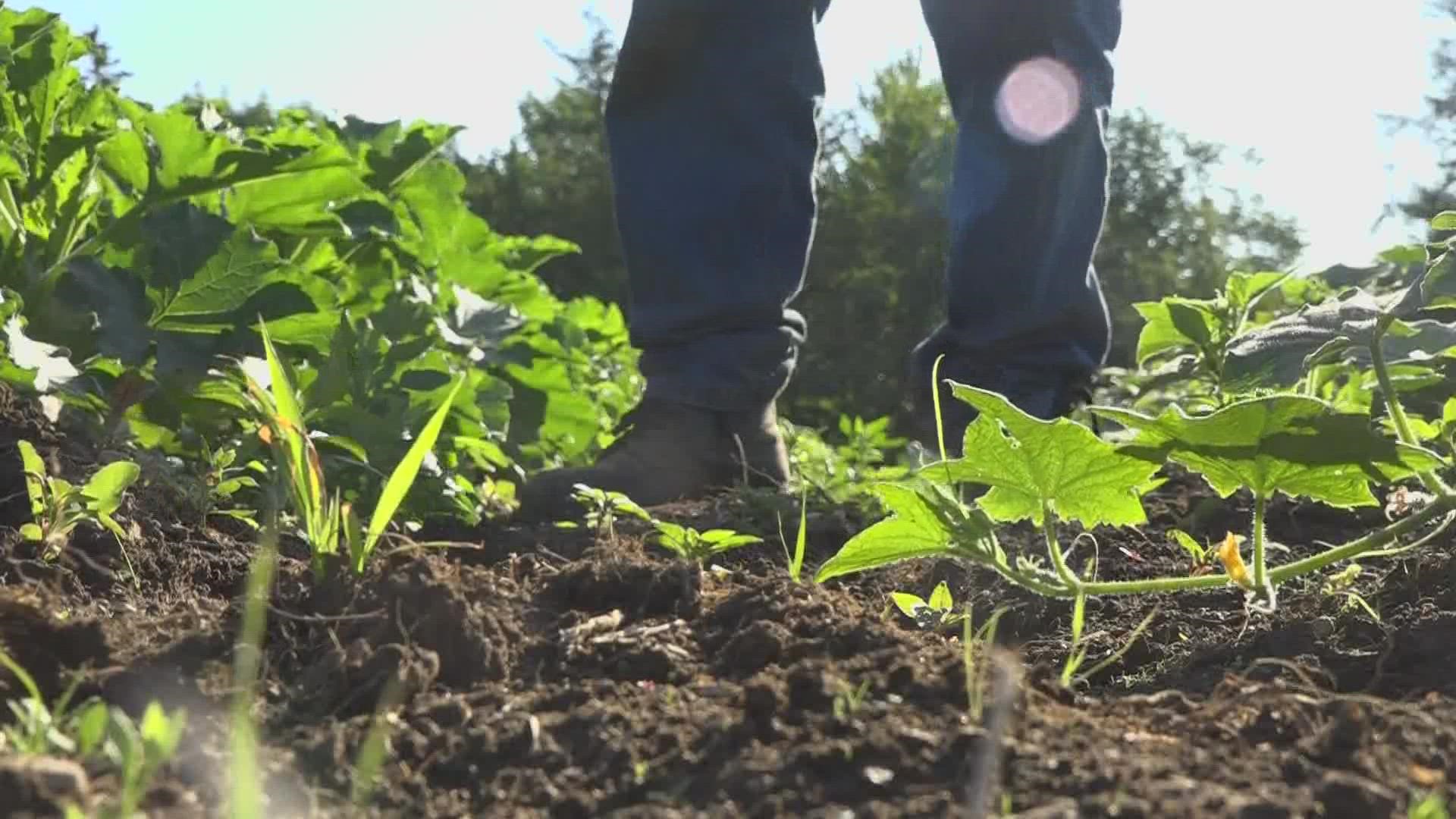CHARLESTON, Maine — A farm-to-table program at a Maine prison is saving thousands of dollars of its annual budget. The program kicked off a few years ago in an effort to improve the diet of inmates.
Mark McBrine runs the program. After being a farmer for decades, McBrine brought his set of skills to the facility and encourages inmates to grow and harvest all sorts of products on a 2.5-acre piece of the property leased from the Maine Department of Inland Fisheries and Wildlife.
The vegetable garden located in front of the correctional facility grows a wide variety of produce, qualifying inmates plant the seeds, harvest the crops when ready, to later enjoy the fresh produce in meals.
McBrine said the goal is to improve the inmates' mental and physical well-being by providing healthy activity and better meals.
"Once I was made the food service manager, why don't we try to do the same thing that we did in our family? So we've worked for the last six years to bring locally sourced and products that we raise ourselves and end up making them into meals that are good, wholesome, nutritious, and it saved us a lot of money," McBrine said.
"To be able to produce fresh product, not only to create a learning program, but also to be able to have some of these fresh things that might be harder for us to get from a local distributor, to put into our meals and have in the kitchen," said McBrine.
McBrine said diversifying meals has made some inmates excited about what the daily menu is going to be, and it boosts not only their physical health but also their mental health.
They are always looking forward to seeing that end up on their tray!" said McBrine.
It is estimated that more than 100,000 pounds of fresh food comes out of the vegetable garden, and nothing goes to waste.
"It helps ease and make time go a little bit easier, just to appreciate a little bit of the freedoms that you get out here," said inmate Julio, who works the land five times a week.
"Knowing that you had an involvement in it, they like seeing that progress not only in the field but in life, seeing a growth," said Michael Niles, correctional trades instructor.
Inmates get paid if they work for the programs and get fewer days of the time they have to serve.
"Nine days a month for working in this program," said McBrine.
After the daily harvest happens, those vegetables are incorporated in meals back at the kitchen inside the prison. McBrine runs a scratch cooking approach, where another group of inmates cook all the meals.
"We haven't purchased any bread and desserts, we make all our own bread, our own desserts, our own rolls, English muffins, bagels," added McBrine.
The food programs are saving the prison more than $100,000 dollars a year, and a lot of that money has been invested back in purchasing bigger and better cooking equipment to keep improving the meals.
"It keeps me busy on my feet, 14 hours a day sometimes, to get me ready for the outside world once I get back out there," expressed Timothy, an inmate who also runs the kitchen when McBrine is not there.
Jesse said the experience has also given him personal skills.
"They taught me how to be respectful, how to do stuff, show up on time, do your job," said Jesse.
Officials say many of the inmates who have been released are now working at bakeries or restaurants, something McBrine said is another success of the program.
Other prisons and jails throughout the country are trying to adopt similar approaches to encourage healthy eating in prisons and give more work opportunities to inmates.

